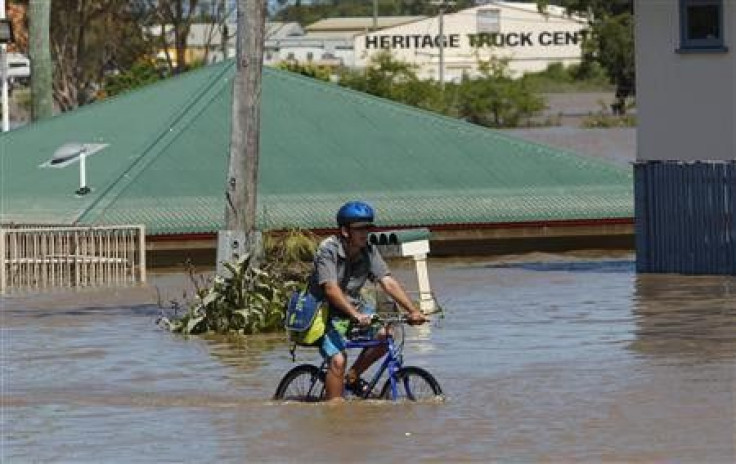Aussie floods pushing up commodity prices

The devastating floods in Queensland Australia has driven up the prices of certain commodities, including coal, wheat and sugar. With warnings that the flood may not recede for weeks, the longer-term impact on commodity prices becomes a great concern.
Wheat prices have risen as a result of massive floods that have devastated Queensland in Australia, the largest exporter of the grain in the southern hemisphere, and fourth largest in the world.
A spokesman for GrainCorp, the Australian grain handler, told Reuters we are unable to move anything by rail or, of course, road.”
Chicago wheat futures for March reached a five-month high, while wheat futures in Kansas hit a two-year high.
Wheat prices climbed 47 percent in 2010, boosted by reduced production in Russia due to adverse weather conditions.
The Premier of Queensland, Anna Bligh, has warned that the floodwaters in her province may not recede for weeks.
Given the scale and size of this disaster, and the prospect that we will see waters sitting potentially for a couple of weeks, we will continue to have major issues to deal with throughout January, she said.
The flooding has cut off or flooded almost two dozen towns, affecting more than 200,000 people. Reportedly, three people have died as a result of the rising waters.
An area the size of France and Germany combined (850,000 square kilometers) has been impacted by the floods.
Australian Prime Minister Julia Gillard warned This is a major natural disaster and recovery will take a significant amount of time. The extent of flooding being experienced by Queensland is unprecedented and requires a national and united response.
The flooding is also affecting the production of coal and sugar.
The price of thermal coal reached a 27-month high, due to the cold weather in the U.S. as well as flooding Down Under.
Premier Bligh said about three-quarters of Queensland’s coalfields have halted operations. Major global coal miners, including Anglo American and Rio Tinto (NYSE: RIO), have cancelled shipments.
Coal from the region provide about half the world’s coking coal which is used in steelmaking. Australia is also the second-biggest exporter of thermal coal used for power generation.
More importantly, coal is Australia’s number one export, accounting for $55-billion of export revenues annually.
Queensland also supplies the entire country’s sugar – perhaps leading the country to becoming a net importer (from Brazil and Thailand) by year-end.
Canegrowers, an Australian sugar industry group, estimates that up to 18 percent of the 2010 cane harvest has been abandoned and early plantings for 2011's crop were under water.
However, the price of sugar might not take too big of a hit from the Australian calamities.
An analyst at Phillip Futures Ker Chung Yang forecast that the price of sugar will likely take a breather in the short-term as increasing hopes for Indian sugar will offset worries raised by the Queensland flooding.
© Copyright IBTimes 2024. All rights reserved.











